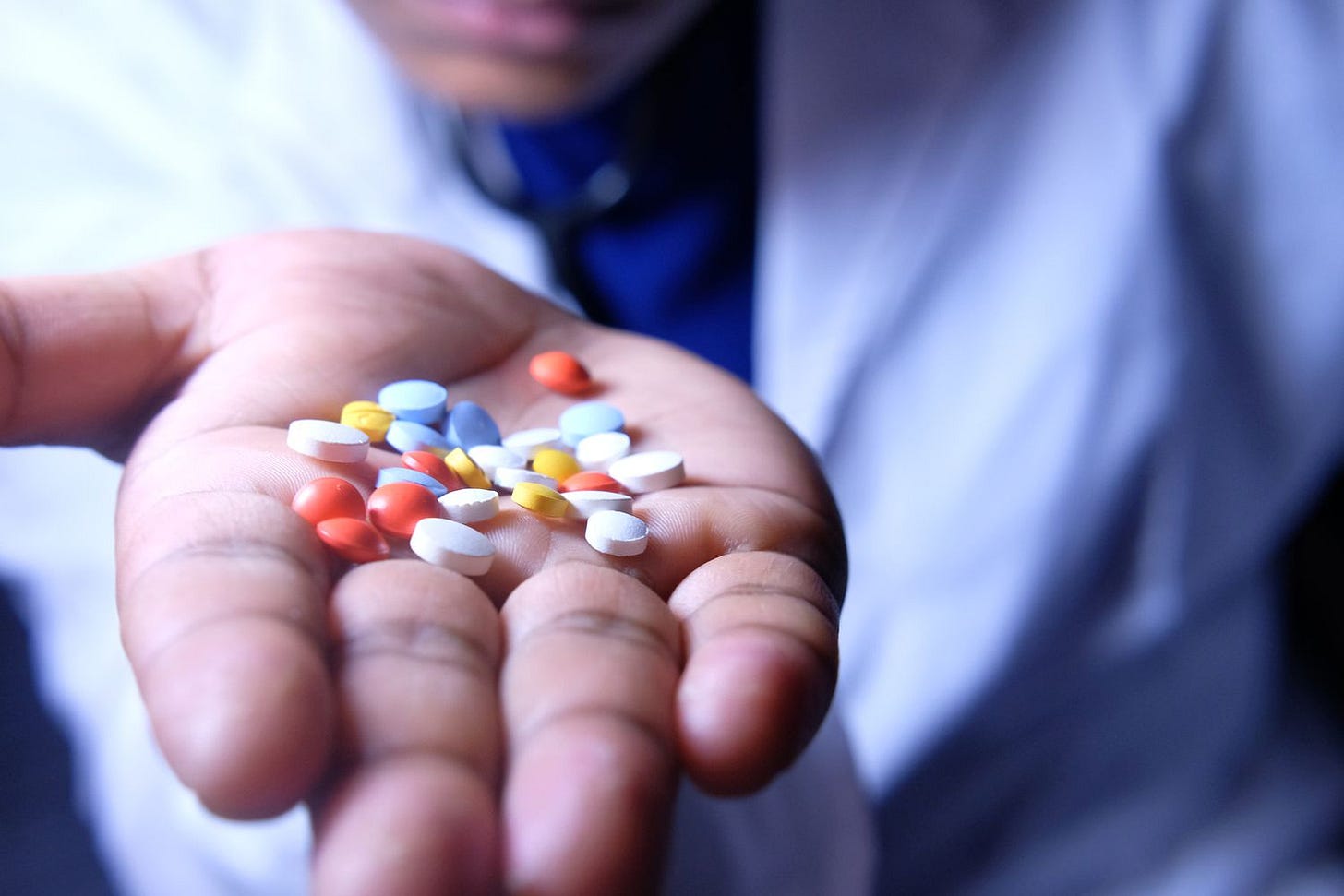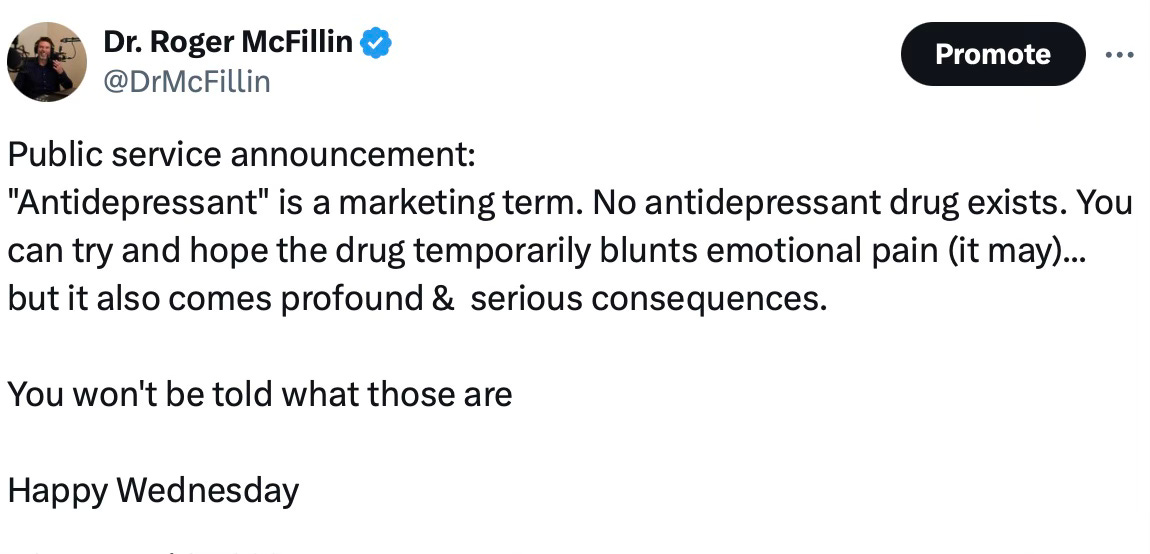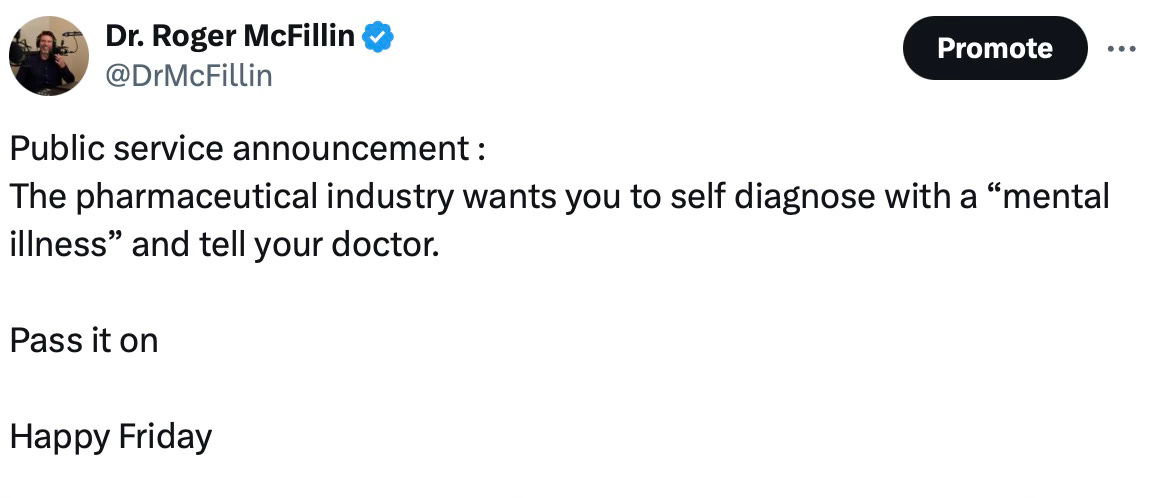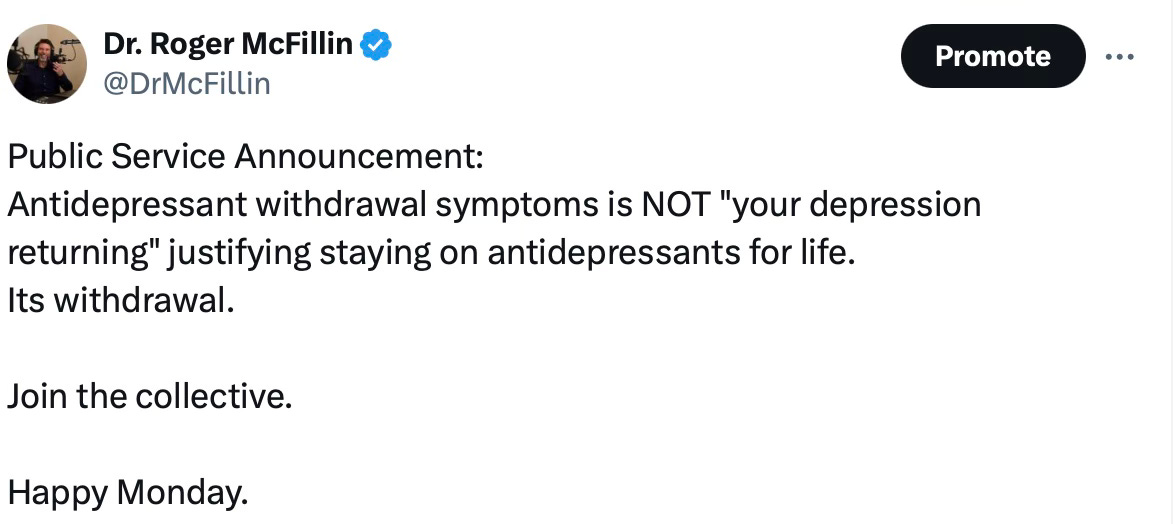My Public Service Announcements
Powerful messaging to reverse course and save western civilization.
I remember when I was a kid, sprawled on the living room carpet, my eyes glued to the TV. Between episodes of primetime shows or the nightly news, they'd appear - those earnest, often cheesy, but somehow memorable public service announcements (PSAs).
These PSAs were the government's well-meaning attempts to parent us all, a collective conscience broadcast into our living rooms between sitcom laughs. They were simplistic, often heavy-handed, but they spoke to the concerns of the time - or at least, what the authorities thought we should be concerned about.
Every night at 10 PM, like clockwork, television stations across America would broadcast that haunting question:
"It's 10 PM. Do you know where your children are?"
This simple yet powerful public service announcement served as a nightly reminder for parents to be aware of their children's whereabouts and safety.
It was a different era, when the dangers seemed to lurk primarily in the physical world – dark streets, strangers' cars, or the "bad influence" down the block. Fast forward to today, and the irony is palpable. Now, we know exactly where our kids are – they're in their rooms, mere feet away, yet lost in the vast and potentially treacherous digital wilderness of social media and online interactions.
Think about it: we had so much freedom and such a pervasive sense of safety that the government actually had to remind parents to keep tabs on their kids. Fast forward to today's helicopter parents, who'd need a PSA reminding them it's okay if their children are out of sight for five minutes.
The modern equivalent might be, "It's 10 PM. Do you know what your child is doing online?"
And then there was that unforgettable egg sizzling in a frying pan: "This is your brain. This is your brain on drugs." Simple, stark, and seared into my memory.
But as I sit here now, a grown adult in a world that seems infinitely more complex than the one of my childhood, I can't help but wonder:
What would mental health PSAs look like if they truly reflected our modern perils? This is your brain… this is your brain on big Pharma?
If the government actually prioritized our health and safety in today's landscape and wasn’t controlled by industry, what urgent messages would flicker across our screens and echo through our social media feeds?
What if I had the power to broadcast messages that could actually move the needle on our collective well-being, what would I say?
Public Service Announcement:
“There is no such thing as an antidepressant drug”
My inaugural public service campaign would launch a series of hard-hitting commercials designed to expose and combat the pharmaceutical industry's manipulative use of language. These provocative ads would strategically target streaming services and social media reels, reaching audiences where they're most vulnerable to misinformation.
Narrator: "Feeling overwhelmed? Angry? Hopeless? Empty? These are normal human experiences. You're not broken. You're human."
[Cut to images of antidepressant ads and smiling people in pharmaceutical commercials]
Narrator: "Big Pharma wants you to believe there's a pill for every emotion. A quick fix for your pain. But here's the truth:"
[Bold text appears on screen]
"No pill will ever solve these problems."
Narrator: "There is no such thing as a chemical imbalance. Your emotions are gifts and your mind and body are telling you something needs to change."
Narrator: "You have it within you to grow from this experience. To become stronger, more resilient."
[Cut to scenes of pharmaceutical executives in boardrooms]
Narrator: "But pharmaceutical companies don't profit from your strength. They profit from your dependence on their products."
[List of side effects appears on screen]
Narrator: "Are you willing to risk permanent sexual dysfunction, weight gain, or even increased suicidal thoughts based on marketing propaganda?"
Narrator: "Although depression may occur, trust me, there is no quick fix. Real healing takes time, effort, and support. The sicker we are the richer they are.”
Public Service Announcement:
The pharmaceutical industry wants you to self diagnose with a “mental illness”!
Welcome to the Age of Convenient Diagnoses, where Big Pharma's profit margins depend on your self-doubt. Scroll through social media and witness the parade of mental health labels, each competing for your identity. Feeling down? You're depressed. Distracted? Must be ADHD. This isn't awareness—it's a marketing campaign masquerading as empathy.
With every online quiz and shared post, we're not spreading understanding; we're expanding the customer base for prescription drugs. The pharmaceutical industry isn't just selling pills; they're selling the idea that every human struggle requires medication. They profit from your pain while you wear their diagnoses like badges of honor.
In response to this troubling trend, we're launching a nationwide public service campaign to challenge the rampant self-diagnosis culture and the pharmaceutical industry's role in perpetuating it.
Imagine stepping off a plane, bleary-eyed from your journey, only to be confronted by a stark, oversized poster asking, "Feeling blue? Big Pharma hopes so."
This is just the beginning of a bold, in-your-face public service campaign plastered across America's transportation hubs and highways. In bustling airport terminals, harried travelers are stopped in their tracks by thought-provoking billboards declaring, "The pharmaceutical industry wants you to self-diagnose with a 'mental illness' and tell your doctor."
As commuters descend into subway stations, they're met with eye-catching advertisements that challenge the very notion of mental illness, forcing them to question the labels society so readily applies. And for those on long road trips, colossal billboards loom over the nation's busiest highways, their provocative messages impossible to ignore: "Before you diagnose yourself, ask who profits from your 'illness'."
This campaign turns America's public spaces into a battlefield of ideas, confronting millions with uncomfortable truths about the intersection of mental health and corporate profit, one glimpse at a time.
Public Service Announcement:
"Phone addiction, poor diet & a sedentary lifestyle are NOT 'ADHD'"
Imagine a haunting public service announcement that opens with a close-up of a face illuminated by the harsh blue light of a smartphone. As the camera slowly pans out, we see a disheveled figure hunched over a glowing screen in a dark room.
It's 2 AM, but time seems meaningless here. The camera sweeps across a coffee table littered with empty energy drink cans and fast food wrappers, visual echoes of countless nights like this one. We see rapid cuts between the person's glazed eyes, twitching thumbs, and the endless scroll of social media feeds.
Suddenly, the scene shifts to show the same person squinting in harsh daylight, clearly uncomfortable, emphasizing their prolonged indoor isolation. The video then splits into multiple screens, each showing similar scenes playing out in homes across America, driving home the point that this isn't an isolated incident – it's an epidemic.
As the camera pulls back further, these individual screens form a mosaic spelling out "ADHD?"
A voiceover cuts in:
"When we can't focus in a world designed to distract us, are we disordered, or just human?"
The final shot zooms out to reveal the mosaic is shaped like a pill, before fading to black with the tagline:
"America: Land of the free, home of the misdiagnosed."
Public Service Announcement:
Chemicals in Your Food are Poison
Picture a hard-hitting campaign that exposes the dark reality of our food system, splashed across billboards, magazine spreads, and social media feeds. Imagine a stark image of a colorful, appetizing burger slowly dissolving to reveal a grotesque assemblage of pills, capsules, and syringes – a visual metaphor for the chemical cocktail lurking in our everyday meals.
The caption reads, "Your lunch or their lab experiment?"
As you scroll through your Instagram feed, you're confronted with a carousel of your favorite snacks, each image peeling back layers to expose the hidden additives within, accompanied by the haunting tagline:
"Swipe to see what's really inside."
On Twitter, a viral thread breaks down the "Top 5 Brain-Hacking Additives in Your Pantry," each tweet a mini-exposé on the neurological impacts of common food chemicals.
The campaign crescendos with a TikTok challenge where users attempt to pronounce the ingredient lists of popular processed foods, their stumbling attempts driving home the point:
"If you can't say it, should you really be eating it?"
Across all platforms, the message is clear and cutting:
"Chemicals in Your Food are Poison. They're not selling nutrition; they're selling addiction."
This campaign doesn't just inform – it provokes, it unsettles, and it demands action, leaving viewers unable to look at their next meal the same way again.
Let's cut through the bullshit and state the obvious: If you're eating shit, you're going to feel like shit. It's that simple. The mental health industry wants to slap a diagnosis on you and push pills down your throat, but have they asked what you're putting on your plate?
Your brain isn't some isolated organ floating in a vacuum; it's part of your body, and your body runs on what you feed it. When you're cramming processed crap, sugar-laden junk, and chemical cocktails masquerading as food into your system, you're not just clogging your arteries – you're fogging your brain. Mood swings, anxiety, lack of focus – maybe it's not a disorder. Maybe it's your diet disorder.
Before you buy into the idea that your mental state is a malfunction requiring medication, take a hard look at your nutrition. Are you fueling a high-performance mind, or are you dumping toxic waste into your neural networks? It's time to wake up and realize that mental health starts on your plate. You wouldn't put sand in your car's gas tank and expect it to run smoothly, so why the hell are you treating your brain with less respect than your vehicle?
Public Service Announcement:
"Antidepressant withdrawal symptoms are NOT 'your depression returning'"
This now becomes mandatory because our medical drug pushers have placed so many people on “antidepressants”.
Picture this searing indictment splashed across America's screens: We open on a doctor's office, pristine and professional. A trusted physician, face clearly visible, smiles reassuringly as they hand over a prescription. Suddenly, the scene warps. The doctor's smile turns sinister, their white coat now emblazoned with pharmaceutical logos. The prescription pad becomes a contract with the devil.
Cut to a patient writhing in agony, clearly experiencing severe withdrawal symptoms. We see a montage of doctors, each dismissively waving off concerns: "It's just your depression coming back," they parrot, their eyes glazed over, mouths moving in creepy unison. The words "IGNORANCE" and "MALPRACTICE" stamp across their foreheads.
Next, we see a medical school classroom. The "professor" is a giant pill bottle wearing a lab coat, spoon-feeding information to mindless doctor-drones. Text appears: "Four years of med school, zero hours on antidepressant withdrawal."
We zoom in on a doctor's diploma on the wall. It slowly morphs into a "Certificate of Willful Ignorance" issued by "Big Pharma U." The camera pans to show the doctor using it as a blindfold.
The scene shifts to a courtroom. A parade of doctors takes the stand, each smugly declaring, "I was just following protocol." The judge's gavel slams down, but instead of "Order in the court!" we hear, "The blind leading the blind!"
We close on a split screen: on one side, a doctor casually writing prescriptions, on the other, patients struggling with debilitating withdrawal symptoms. A damning message sears across the screen: "They took an oath to 'Do No Harm.' They lied."
The final shot: a doctor's prescription pad. As a hand writes "ANTIDEPRESSANT," it bleeds through the paper, revealing the word "BETRAYAL" underneath.
Closing tagline: "It's not your depression returning. It's your doctor's negligence revealing itself. Demand better. Demand accountability."
This isn't just a PSA. It's a public shaming, a call to arms, and a demand for a complete overhaul of a system that has failed its patients. It's time to hold these white-coated pill pushers accountable for their ignorance and complicity.
Public Service Announcement:
“Human Emotions Are Not Symptoms”
Imagine a campaign that slaps you in the face with the raw power of human resilience. Billboard-sized images of people rising from the ashes of their darkest moments, juxtaposed with the same individuals drugged into complacency, force you to confront an uncomfortable truth: we've pathologized the very essence of human strength.
"Emotions Are Not Symptoms!" screams from every street corner and social media feed. This isn't just advertising; it's a war cry against the medicalization of the human experience.
Scroll through your phone and be gut-punched by challenges to everything you've been sold:
"Grieving?
It's not a disorder, it's your heart's way of honoring loss."
"Anxious? That's your ancestor's survival instinct keeping you sharp."
Watch as "The Resilience Revolution" podcast series exposes how Big Pharma has hijacked our natural human tenacity, replacing thousand-year-old coping mechanisms with a quick fix in a bottle.
Participate in "Emotional Warrior" boot camps in your community, where the only prescription is a double dose of reality and a swift kick to your innate human fortitude.
This campaign doesn't coddle; it catapults you into the discomfort zone where true growth happens. It demands you embrace the full spectrum of your emotions as the birthright of your species, the very force that's carried humanity through plagues, wars, and the invention of social media.
In a world hell-bent on convincing you that you're too fragile to handle life's challenges, this campaign roars:
You are the descendant of survivors.
Your DNA is forged in resilience.
It's time to feel deeply, to struggle openly, to triumph unapologetically. This isn't a feel-good campaign; it's a feel-everything revolution that reawakens the sleeping giant of human endurance.
The time for passivity is over. We stand at a crossroads, bombarded by messages that our very humanity is a disease, that our resilience is a resource to be mined and bottled by Big Pharma.
So here's your prescription: Resist.
Question every label slapped onto your psyche.
Challenge every doctor who tries to medicate your humanity into submission.
Embrace the wild, messy, beautiful chaos of being alive. Let your tears flow untamed by SSRIs, let your fears drive you to action, not sedation. We are not a nation of patients; we are a species of survivors, innovators, and warriors. The next time someone tries to sell you "mental health," sell them back the radical idea of being human.
This is your call to arms, your battle cry, your permission slip to feel everything, unfiltered and unmedicated. Because in a world that profits from your numbness, feeling is the ultimate act of rebellion. Now go forth and be gloriously, defiantly human.











Excellent article!!
Do you believe that ssri’s and other commonly prescribed drugs these days can numb people to the point where trauma therapy can be ineffective? Like a layer of numbness between what would be an otherwise healthy and healing process so that the old trauma is not effectively healed?
Like you can talk about past trauma (or use EDMR or whatever) and sort of have emotions that you don’t fully feel and it just doesn’t really work, at least not very well…
(I do)
Powerful.